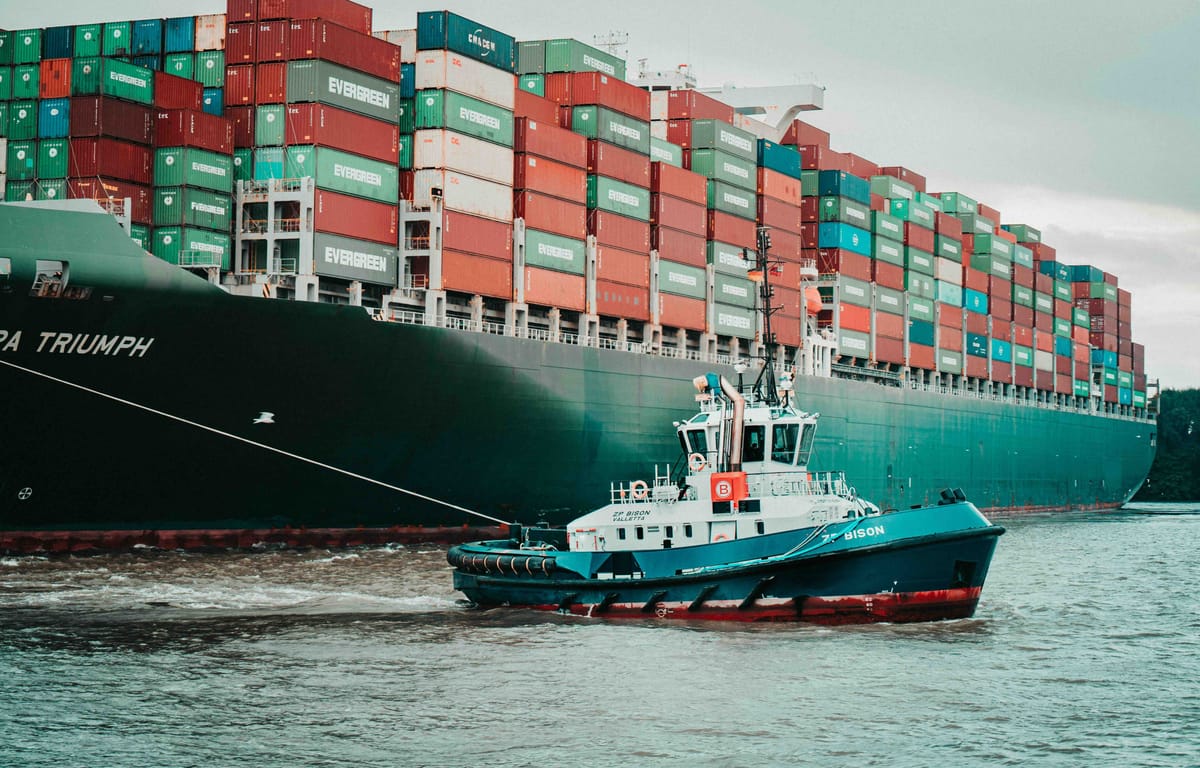How can commodity hedging bring security to businesses in an era of price shocks and volatility?
"The world is in unrest. We can no longer afford the luxury of chance..."

Global price volatility is an existential risk for businesses that rely on a steady supply of raw materials. Sudden spikes in commodity costs can wreak havoc across supply chains, turning profitable businesses into dead ducks overnight.
These catastrophic cost surges can take place in a frighteningly short space of time due to unpredictable events such as extreme weather or geopolitical crises - as well as economic earthquakes or tremors in the regulatory landscape.
Commodity hedging is a shelter in the storm, offering companies the ability to lock in a price for materials and mitigate the risk of market fluctuations. Traditionally, this option was simply unavailable to many businesses.
Large corporations have long shielded themselves from this uncertainty through sophisticated financial instruments, but for mid-sized and smaller businesses, commodity hedging has remained an exclusive tool, hidden behind layers of cost and complexity.
Attara is a British firm that wants to change this situation. It uses a combination of tech and consultancy to hedge against price shifts in areas including fuels, metals and agriculture.
Machine spoke to Graham Cade, Head of Operations, pictured below, to discuss his company's work.

What is commodity hedging?
"As a marketplace for raw materials, the commodity market is volatile by its very nature. It’s a delicate ecosystem that is underpinned by geopolitics, climate, macroeconomic changes and the wider regulatory landscape, to name a few things. Movements in just one of these areas could mean drastic changes in outgoings for companies that trade in raw materials somewhere throughout their supply chain.
"This uncertainty impacts many UK businesses of all sizes. Hedging solutions are all about mitigating risk from price volatility and providing certainty for these businesses trying to plan ahead. So why haven’t we considered the role technology can play yet?
"By offsetting swinging prices with an array of tools, hedging allows businesses to scale their outgoings and, in some cases, even lock in prices for the year.
"For example, a haulage company can expect around 20% of their costs to go towards fuel- which is a large proportion of their outgoings behind only wages and property. Locking in this price could help them to get ahead in the race against competitors who, without reliable forecasting, will experience a false start."
How is hedging traditionally offered?
"Until now, hedging service providers have exclusively focused on larger companies, with great margins for risk at stake, and most smaller companies don't even know the option exists. Granted, bigger companies are dealing with bigger overheads, but isn’t risk relative?
"When he was working on the trading floor at Barclay’s, Richard de Meo, our CEO and founder, first noticed that mid-cap companies weren’t benefitting from the same services. It just didn’t make sense.
"There’s a great deal of education that needs to be done for businesses of this size to even know that commodity hedging exists. That’s the first step for us: democratising the market.
"When we went through the regulation process in the UK, the FCA admitted that it hadn’t seen hedging services provided in this way and to such a range of companies."
Is financial trading changing?
"Financial trading on the floor is a hustle and bustle like no other and requires experience. It’s an industry etched in tradition, working with models that have been around for years.
"Now, we’re on the precipice of an exciting era. Increasingly, new technologies are emerging that have the potential to revolutionise the way we trade. It’s through this cutting-edge technology that we can lower the barrier to entry in an industry that, for far too long, has been centred around serving large corporations."
Is commodity hedging becoming more accessible?
"The majority of our client base, and businesses in general, do not know the first thing about commodity hedging, and we can’t blame them - it’s hardly very accessible.
"It’s about volume. How do smaller businesses learn about financial tools that haven’t been offered to mid-cap companies?
"Herein lies the problem, but the use of technology simplifies the whole process. The revolution of accessibility means that business leaders can focus on what matters most, running their own business."
What external factors are impacting businesses?
"The word ‘unprecedented’ has been thrown around so often in recent years, we’ve come to expect the unexpected. And if we take a step back to consider, the world really is in unrest at the moment - and realistically, it will be forever more. There will always be something around the corner, be that geopolitical tensions, natural disasters or regulatory shifts. The point is that we can no longer afford the luxury of chance.
"Many countries are still feeling the economic repercussions of Covid-19. Slow recovery globally is impacting sectors and markets where industrial demand is fluctuating, all while we experience the hottest temperatures on record. This pressure cooker of instability is exacerbated by current political tensions, which have a direct influence on the way markets trade."
How are commodity markets expected to perform over the next year?
"The global macroeconomic outlook for 2025 is characterised by slow but steady growth, easing inflation and cautious monetary policy where companies are treading a path to recovery that is still laden with risk.
"It was mid-cap and privately owned businesses that were the hardest hit by fiscal measures announced in the Autumn Budget last year in the UK, making the prospect of growth more challenging, despite cautiously optimistic headlines that predict the UK’s economy will grow by 1.7% in 2025 (OECD).
"Another large factor affecting this year’s markets is the wider sustainability drive. For example, the popularity of EVs will impact the demand for certain metals and reduce the demand for fuel, but what is needed to ramp up renewable energy production, and where does that leave demand for other raw materials?"
Have you got a story or insights to share? Get in touch and let us know.




